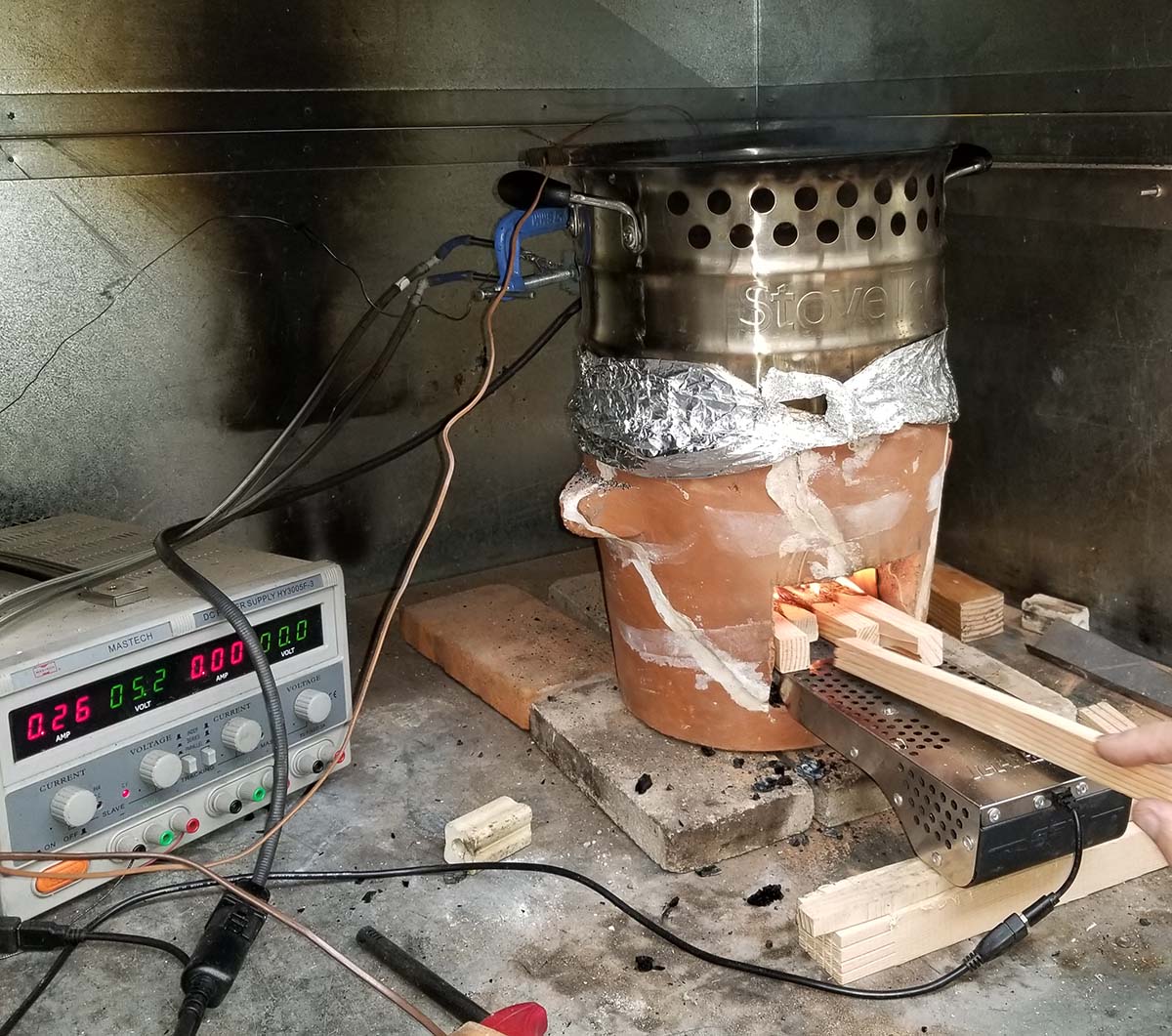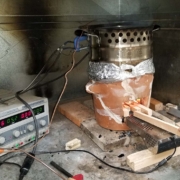A Culture of Daily Experimentation

What do I like most about Aprovecho Research Center? We have created a “culture of daily experimentation.”
Scheduling two to three experiments every morning means that we can try less-likely-to-succeed variations. That’s great because experiments that don’t succeed in improving a stove often reveal interesting and possibly unexpected results. And that can lead to new insights. “Accident favors the prepared mind,” Pasteur reminds us.
Nordica MacCarty, our new Executive Director, recently suggested that it would be a good idea to see what happens when the Jet-Flame is used without a Rocket combustion chamber. We have been working with Christa Roth and Christoph Messinger from GIZ, investigating what happens when the Jet-Flame is used in the Chitetezo stove. It was easy to continue the investigation into the effects of primary air jets blowing up into the fuel. We removed the rocket-style combustion chamber that we were testing, and put a short metal fence around the Jet-Flame to keep the sticks on top of the air holes. A SuperPot was used and set directly on top of the stove.
It’s been very interesting to try different sized sticks with the Jet-Flame. Generally, small sticks burn faster and make a lot of flame, but also more smoke. Two 4 cm x 4.5 cm sticks burn more slowly and emit less smoke but the firepower is lower. With no insulation around the combustion zone, we tried burning four sticks that were 2 cm x 2.5 cm. The results were surprisingly good: Tier 4 for thermal efficiency, Tier 4 for PM2.5, and Tier 5 for CO.
The size of the sticks made a significant difference on all three measures, which makes sense and has been seen in natural draft stoves. But it’s noteworthy that the size of the sticks results in big differences with the Jet-Flame. Following up on Nordica’s suggestion made for a more interesting week here at the lab. Completing ten to fifteen half-hour experiments weekly makes it more likely that progress is being made.
Reading/learning in front of the computer is important, and OK for a while, but we also like to get into the lab to try and create/learn something new.




Leave a Reply
Want to join the discussion?Feel free to contribute!